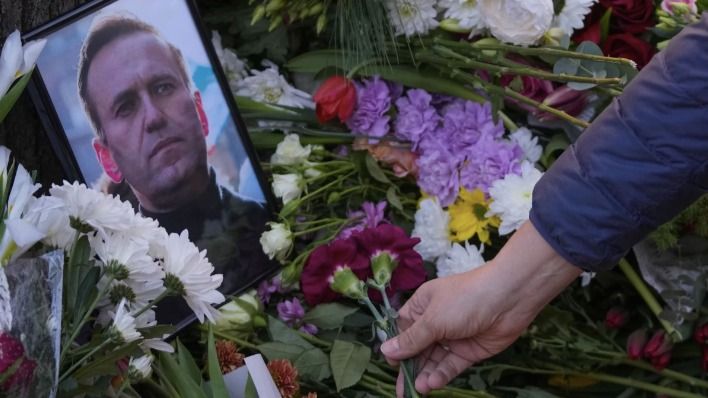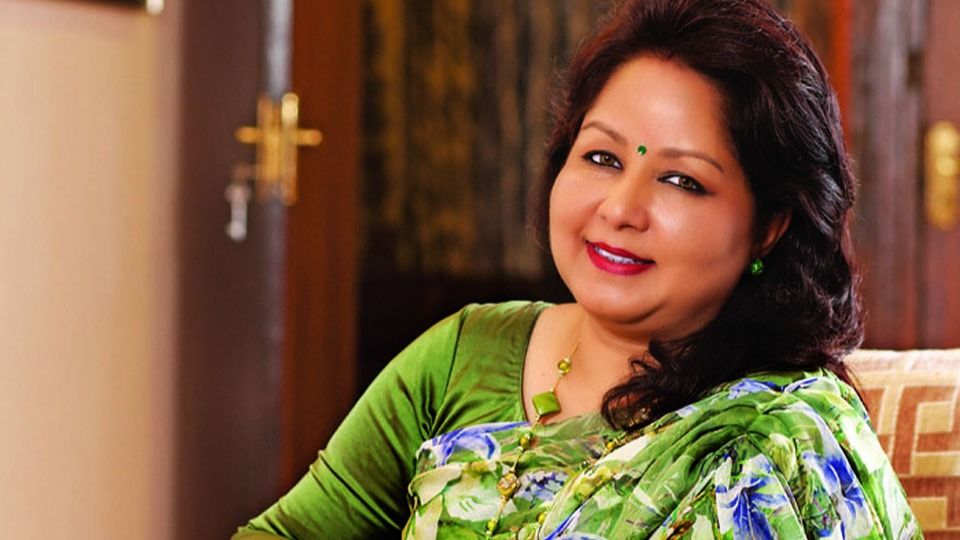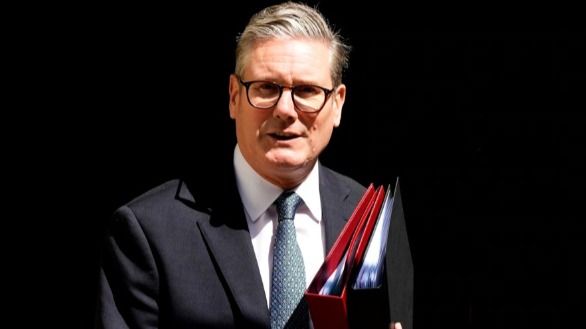Customers at a Berlin bookstore wasted no time in picking up copies of Russian opposition leader Alexey Navalny’s posthumous memoir when it was released on Tuesday.
In the book, which hit the shelves eight months after he died in prison, Navalny never loses faith that his cause is worth suffering for, while also acknowledging he wished he could have written a very different book.
One customer buying a copy in Berlin described Navalny as a “contemporary hero.”
“That’s why I’d like to read what he has to say, what he has to write,” said Jorg Carlsson.
The final 200 pages of Navalny’s 479-page book does, in some ways, have the characteristics of other prison diaries or of such classic Russian literature as Aleksandr Solzhenitsyn’s “One Day in the Life of Ivan Denisovich.”
He tracks the boredom, isolation, exhaustion, suffering and absurdity of prison life, while working in asides about everything from 19th century French literature to Billie Eilish.
But “Patriot” also reads as a testament to a famed dissident’s extraordinary battle against despair as the Russian authorities gradually turn the heat up in their crackdown against him, and even shares advice on how to confront the worst and still not lose hope.
In recent years, Navalny had become an international symbol of resistance.
A lawyer by training, he started out as an anti-corruption campaigner, but soon turned into a politician with aspirations for public office and eventually became the main challenger to Russia’s longtime president, Vladimir Putin .
During the first section of his book, Navalny reflects on the fall of the Soviet Union, his disenchantment with 1990s Russian leader Boris Yeltsin, his early crusades against corruption, his entry into public life and his discovery that he did needed to look far for a politician “who would undertake all sorts of needed, interesting projects and cooperate directly with the Russian people.”
“I wanted and waited, and one day I realized I could be that person myself,” he wrote.
His vision of a “beautiful Russia of the future,” where leaders are freely and fairly elected, official corruption is tamed, and democratic institutions work – as well as his strong charisma and sardonic humor – also earned him widespread support across Russia’s 11 time zones.
The authorities responded to Navalny’s growing popularity by levying multiple charges against him, his allies and even family members.
He was jailed after returning in 2021 from Germany where he was recuperating from a nerve agent poisoning he blamed on the Kremlin, and was given three prison terms since.
They also shut down his entire political infrastructure – the Foundation for Fighting Corruption he started in 2011 and a network of about 40 regional offices.
The pressure continued behind bars, intensifying after Russia invaded Ukraine in February 2022 and ratcheted its clampdown on dissent to unprecedented levels.
In messages he was able to get out of prison, Navalny described harrowing conditions of solitary confinement, where he was placed for months on end for various minor infractions that prison officials relentlessly accused him of, sleep deprivation, a meagre diet and a lack of medical help.
In October 2023, three of his lawyers were arrested and two more were put on a wanted list.
In December 2023, the authorities transferred Navalny to a penal colony of the highest security level in the Russian penitentiary system in a remote town above the Arctic Circle.
In February 2024, 47-year-old Navalny suddenly died there; the circumstances and the cause of his death still remain a mystery.
Navalny’s widow, Yulia Navalnaya, and allies say the Kremlin killed him, while the authorities argue that Navalny died of “natural causes,” but wouldn’t reveal any details of what happened.
Russian officials have vehemently denied involvement both in the nerve agent poisoning and in his death.
Tens of thousands of Russians turned up at his funeral on the outskirts of Moscow in March in a rare show of defiance in a country where any street rally or even single pickets often result in immediate arrests and prison terms.
Russian Opposition Leader Alexei Navalny’s Posthumous Memoir is Released in Germany world-news World News | Latest International News | Global World News | World Breaking Headlines Today




